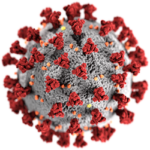
Normally there is an editorial from Mayor Joseph A. Curtatone in this space, but this week the City is instead sharing important information and updates about COVID-19.
The Centers for Disease Control (CDC) and other health agencies are still learning more about COVID-19 and the severity of the virus. Current information points to most COVID-19 illnesses being mild, but certain populations – including older people and people with certain health conditions and compromised immune systems – are vulnerable to developing serious COVID-19 symptoms.
Who is most at risk for developing serious illness?
People 50 to 60 years old or older and people of all ages who have severe underlying health conditions are at the most risk. It is especially important that people in these groups take extra precautions to protect themselves from the spread of COVID-19.
Underlying conditions currently identified as increasing the risk include, but are not limited to:
- heart, kidney, or liver disease
- lung disease
- diabetes
- chronic bronchitis
- emphysema
- immune deficiency, or persons taking medications that suppress immune function
- high blood pressure
The risk for severe symptoms increases for people who fall into multiple categories, for example if you are over 50 and have lung disease. The risk for complications also rises with increasing age, with those over 80 being most vulnerable.
What should higher risk populations do to prepare?
- Make sure you have enough supplies on hand for a potential two-week quarantine including food, prescription medications, and over the counter medication to treat fever.
- Take everyday precautions like frequently washing your hands with soap and water or using hand sanitizer until soap and water are available, cleaning surfaces you touch frequently, avoiding close contact with sick people, and avoiding touching your face.
- Avoid crowds as much as possible and avoid unnecessary travel, especially to places with COVID-19 outbreaks.
- If there is a COVID-19 outbreak in your community, stay home as much as possible.
- Have a plan for if you get sick. Talk to your healthcare provider about monitoring your health for symptoms (fever, cough, shortness of breath) and, if you have a caregiver, determine who can step in if they become ill.
- Reach out to family, friends, and neighbors for help preparing, if you need it.
What can everyone do to protect higher risk populations?
- Frequently wash your hands with soap and water, sneeze and cough into a tissue or your elbow, clean surfaces you use frequently, and take other everyday precautions to avoid spreading illnesses.
- Don’t hoard medical supplies, food, or other goods people might need during quarantine.
- If you are sick, stay home and avoid contact with others, especially people at higher risk.
- Check with friends, family members, and neighbors who may need help preparing.
Again, COVID-19 commonly spreads through droplets produced by coughing and sneezing, close personal contact, or touching something with the virus on it and then touching your face before washing your hands. It is therefore important that anyone who is sick stay home and that everyone avoid large crowds and crowded situations. Taking these measures can help slow the spread of COVID-19 and protect those at a higher risk of developing severe illness.
The City and Somerville Public Schools will continue to post updates at www.somervillema.gov/coronavirus as more information becomes available.















Reader Comments